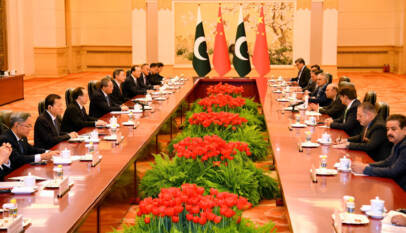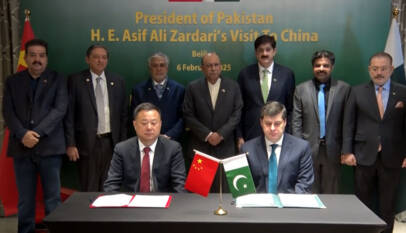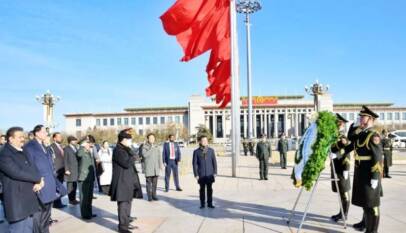China has made load shedding in Pakistan a relic of the past: President Alvi
During a virtual event to celebrate 70th anniversary of China-Pakistan relations, President Arif Alvi said that China has made electricity a relic of the past. Lei Yu, an expert at the Chinese Academy of Environmental Planning has defined China’s new energy experience by highlighting the country’s Renewable Energy Law to promote investment in this area. Lei adds that China has also given subsidies to high-cost energy projects, and that its grid stations are integrated. Moreover, he added that Chinese ministries such as Ministry of Ecology and Environment, the Development and Reform Commission, the Ministry of Transport and other affiliated departments work together. This, he said is in line with President Xi Jinping’s vision of achieving carbon neutrality by 2060.
China-Pakistan Economic Corridor, a flagship project of the Belt and Road Initiative, has solved the electricity shortage problem in Pakistan and will further promote the country’s industrialization to create more jobs, Pakistani President Arif Alvi noted during a recent online reception held to celebrate the Sino-Pak 70th anniversary.
Explaining China’s new energy construction experience, Lei Yu, an expert at the Chinese Academy of Environmental Planning pointed out that “At the government level, China has formulated the Renewable Energy Law, which has laid a sound legal foundation for the development of renewable energy. To ensure the scale of power generation and ensure a better return for the investment in this area, China’s State Grid gives priority to receiving electricity from these renewable energy sources,” Lei said.
China-Pakistan Economic Corridor, a flagship project of the Belt and Road Initiative, has solved the electricity shortage problem in Pakistan and will further promote the country’s industrialization to create more jobs, Pakistani President Arif Alvi noted during a recent online reception held to celebrate the Sino-Pak 70th anniversary.
Explaining China’s new energy construction experience, Lei Yu, an expert at the Chinese Academy of Environmental Planning pointed out that “At the government level, China has formulated the Renewable Energy Law, which has laid a sound legal foundation for the development of renewable energy. To ensure the scale of power generation and ensure a better return for the investment in this area, China’s State Grid gives priority to receiving electricity from these renewable energy sources,” Lei said.
In terms of price, China has set a preferential benchmark price for renewable energy such as wind power and hydropower. In addition, subsidies have been given to high-cost construction, such as offshore wind power, to boost returns on investment, Lei told the reporter. In addition to government purchases, China also encourages the participation of nongovernmental capital. In the process of the construction of renewable energy transmission channels, part of its network is open to society so that such investment can enter, develop, and yield good returns.
According to some studies, Pakistan has a high rate of electric transmission and distribution losses. Touching on this, Lei introduced that China’s power grid organization has its own characteristics, it is very integrated. On this basis, when the load is reduced, we try to make less power transmission on the line. When the load comes up, we will increase the current transmission, such flexible regulation helps reduce electrical loss.
Moreover, increasing the voltage of the entire transmission network, reducing the level of transformation and innovating material of core components such as wires and transformers can reduce electric losses.
In 2020, Chinese President Xi Jinping made the official announcement that China will strive to peak carbon dioxide emissions before 2030 and achieve carbon neutrality before 2060. While Pakistani Prime Minister Imran Khan promised that Pakistan would produce 60% of its electricity from renewable sources by 2030.
Lei told the reporter that in order to reduce energy consumption and improve efficiency, the Ministry of Ecology and Environment, the Development and Reform Commission, the Ministry of Transport and other functional departments need to work together. Governments at all levels need to cooperate and actively mobilize the participation of the whole society. New industries will eventually replace the old ones, and social costs will also be transformed into the driving force of new industries, which will push the entire society forward, Lei concluded.
President Zardari, Premier Li Qiang reaffirm commitment to deepen China-Pakistan strategic partnership
Pakistan and China have underlined the importance of expanding people-to-people and cultur…











